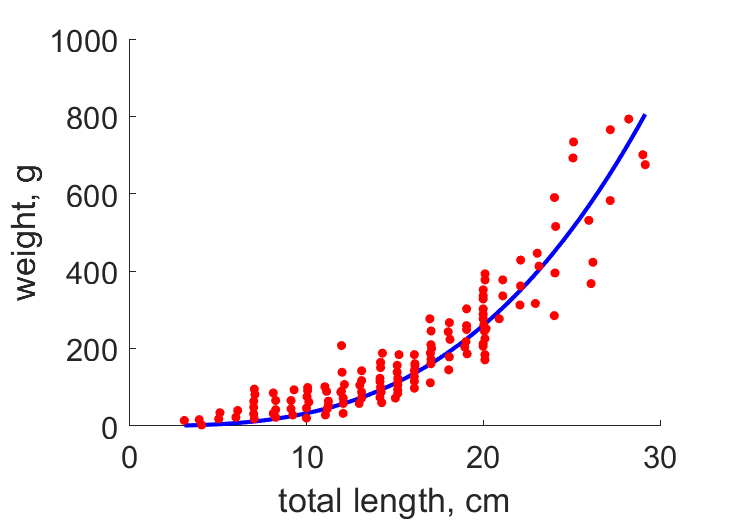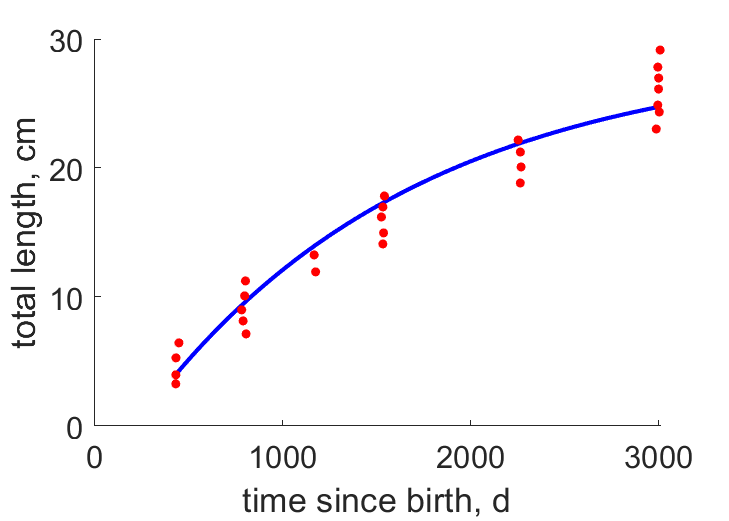Predictions & Data for this entry
| Model: abj | climate: MB | migrate: | phylum: |
| COMPLETE = 2.5 | ecozone: MPE | food: biCi | class: |
| MRE = 0.077 | habitat: 0iMc, 0iMr | gender: Hsf | order: |
| SMSE = 0.016 | embryo: Mnm | reprod: O | family: |
Zero-variate data
| Data | Observed | Predicted | (RE) | Unit | Description | Reference |
|---|---|---|---|---|---|---|
| ab | 8 | 7.142 | (0.1073) | d | age at birth | guess |
| am | 2.08e+04 | 2.08e+04 | (0.0003815) | d | life span | fishbase |
| Lp | 17 | 15.28 | (0.1013) | cm | standard length at puberty | guess |
| Li | 35.6 | 31.33 | (0.1199) | cm | ultimate standard length | fishbase |
| Wwb | 9.1e-05 | 9.145e-05 | (0.004985) | g | wet weight at birth | guess |
| Wwp | 112.3 | 116.2 | (0.03517) | g | wet weight at puberty | fishbase, guess |
| Wwi | 965.5 | 1003 | (0.03839) | g | ultimate wet weight | fishbase |
| Ri | 411 | 412.3 | (0.003304) | #/d | maximum reprod rate | fishbase |
Uni- and bivariate data
| Data | Figure | Independent variable | Dependent variable | (RE) | Reference |
|---|---|---|---|---|---|
| LW |  | total length | weight | (0.2364) | FernReye2016 |
| tL |  | time since birth | total length | (0.09161) | FernReye2016 |
Pseudo-data at Tref = 20°C
| Data | Generalised animal | Holacanthus passer | Unit | Description |
|---|---|---|---|---|
| v | 0.02 | 0.01972 | cm/d | energy conductance |
| p_M | 18 | 5.932 | J/d.cm^3 | vol-spec som maint |
| k_J | 0.002 | 0.0003384 | 1/d | maturity maint rate coefficient |
| k | 0.3 | 0.299 | - | maintenance ratio |
| kap | 0.8 | 0.9797 | - | allocation fraction to soma |
| kap_G | 0.8 | 0.7981 | - | growth efficiency |
| kap_R | 0.95 | 0.95 | - | reproduction efficiency |
Discussion
- males are supposed not to differ from females
Facts
- length-weight: Ww in g = 0.02951*(TL in cm)^2.91 (Ref: fishbase)
Bibliography